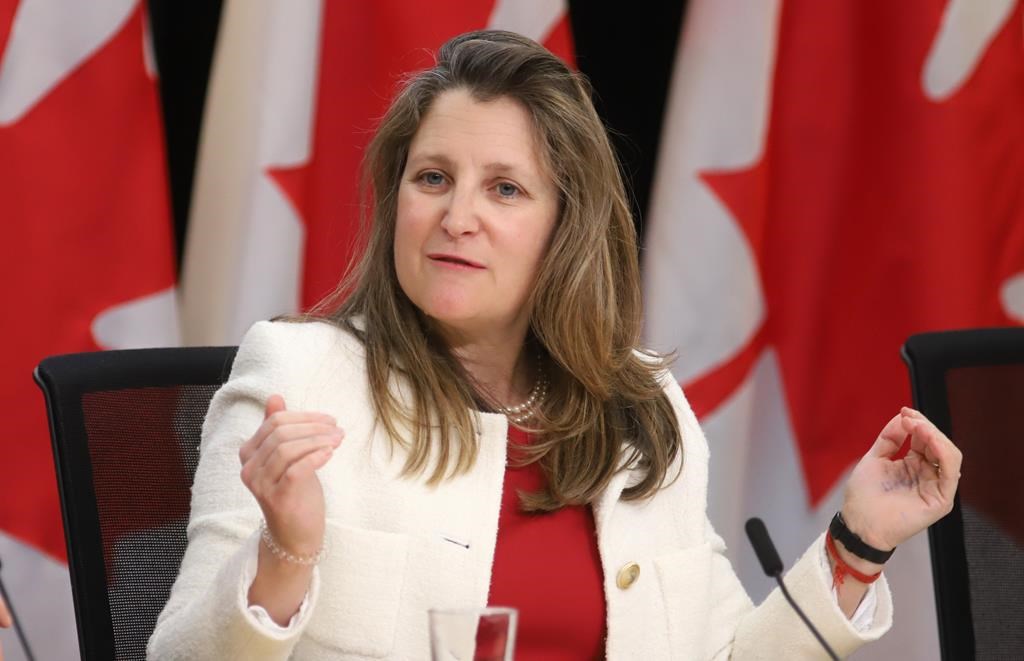Editorial Roundup: Excerpts from recent editorials
Posted Dec 12, 2018 08:19:28 PM.
This article is more than 5 years old.
Excerpts from recent editorials in the United States and abroad:
___
Dec. 12
The Telegraph on British Prime Minister Theresa May surviving her leadership challenge:
Theresa May will travel to Brussels to seek further assurances about the status of the Irish backstop provision in the EU Withdrawal Agreement, in an attempt to salvage the deal she has yet to put to Parliament, fearing its defeat.
In other words, despite yesterday’s dramas at Westminster, where the Prime Minister survived a challenge to her leadership of the Conservative Party, nothing appears to have changed, save in one crucial respect.
Her authority has been further damaged by the fact that 117 of her MPs have no confidence in her stewardship of the party or the Government. That represents well over one third of the party and a sizeable chunk of the backbenchers, assuming that the so-called payroll vote of ministers and aides supported her.
When Margaret Thatcher defeated Michael Heseltine in the first round of their leadership contest in 1990, albeit not by enough to avoid a second ballot, she was told by the Cabinet that her time was up and she resigned. At the time, she had a Commons majority of 100 and had never lost an election.
By contrast, Mrs May has no Commons majority and has never won an election outright. Yet she is sustained in position by the party’s terror of what might happen if she leaves office in the current circumstances. Yes, she has won a confidence vote; but she has been weakened.
She has also confirmed what many had already assumed: that she will not fight the next general election. She meant 2022 – but it might be much earlier than she anticipates and this will cause more unsettling ambiguity. This gives the Cabinet greater power, which could yet be her undoing.
Liam Fox, the Trade Secretary, gave an early sign of ministerial muscle-flexing by saying the Cabinet might not let her put the Withdrawal Agreement to Parliament without further cast-iron guarantees to ensure that it is passed.
For now, the Prime Minister has been given some breathing space. The long-anticipated coup mounted by the Brexiteers backfired when the Prime Minister and Sir Graham Brady, the 1922 Committee chairman, agreed to expedite the contest once he had received the required 48 letters needed to trigger one.
Brexiteers had worked on the assumption that the vote would be staged next week, by which time the Prime Minister’s fate might have been sealed by a long weekend of speculation about her future. However, Downing Street denied them that chance by calling the vote immediately, allowing her critics no time to mobilise. She chose the ground and the timing for the fight and saw them off.
But how has that helped matters? The Prime Minister remains in the same quandary, wedded to a deal that she cannot get Parliament to agree or the EU to change. She is adept at delaying decisions, largely because she knows confronting them will bring matters to a head. That is why she pulled the Commons vote on Tuesday, knowing she would lose heavily but without a plan for winning.
Online: https://www.telegraph.co.uk/
___
Dec. 11
The Washington Post on Google chief executive Sundar Pichai’s appearance before Congress:
Google Chief executive Sundar Pichai’s appearance before Congress on Tuesday augured an era of increased scrutiny for technology companies. The hearing was also a swan song for a Republican majority that has chosen to prioritize political posturing over more pressing issues about how powerful firms manage consumer data, and how they wield their influence in the world.
Members of the conservative majority on the House Judiciary Committee spent much of their time hammering Mr. Pichai with baseless accusations that Google rigs its search results to censor conservative content. Black-box algorithms will inevitably prioritize some content over other content, and to the extent companies can be transparent about how their systems work, they should be. But a single-minded and mindless focus on a nonexistent left-wing conspiracy within Google has had the paradoxical effect of discouraging companies from properly policing their platforms, as they hesitate to remove content that should be removed for fear of unfounded criticism. In a visit to The Post after his hearing, Mr. Pichai said the moderation of misinformation and domestic extremism on YouTube is an area where Google could improve. He also cautioned, fairly, that such actions must be weighed against the importance of free speech.
The bias obsession has distracted from the more important subjects that Congress has failed to address these past two years. That seems likely to change when Democrats take control of the House in January.
The first subject likely to draw more attention is privacy. Mr. Pichai was pressed to lay out, piece by piece, each treasure in the trove of information his company collects on consumers, from name to age to address to minute-by-minute location — mostly used for targeted advertising. Google has gotten ahead of the impending debate by signalling its support for a federal privacy framework, but it’s up to lawmakers to turn vague protection principles into meaningful policy. That means ensuring users know and have some say in what data companies are collecting from them, exactly what it is being used for and who else is getting to see it.
Committee members also expressed interest in examining Google’s potential anticompetitive behaviour. The incoming chairman of the antitrust subcommittee, Rep. David N. Cicilline (D-R.I.), indicated his interest in “structural antitrust,” code for corporate breakups. But the broader appetite for so radical a move is probably limited. Initially, Google seems more likely to face increased attention to charges that it systemically downranks local search results from its competitors.
Finally, legislators lambasted Mr. Pichai over Project Dragonfly, Google’s exploratory effort to launch a search engine in China. Mr. Pichai insisted time and time again that Google has “no plans” to re-enter the Chinese market, but he refused to rule out the possibility of a product that would aid in government repression and surveillance.
These questions represent only a start at confronting Google’s role in society and how lawmakers might regulate it. Fewer minutes spent harping on bias allegations might have allowed time for further-reaching inquiries. Hopefully, that’s what the new year will bring.
Online: https://www.washingtonpost.com/
___
Dec. 11
Los Angeles Times on William Barr’s qualifications for attorney general and protecting special counsel Robert Mueller from White House interference:
President Trump’s announcement that he will nominate William Barr to serve as U.S. attorney general — a position Barr also held under President George H.W. Bush — eases concerns that he would seek to replace ousted Atty. Gen. Jeff Sessions with a loyalist with meagre legal credentials. But Barr needs to convince the U.S. Senate of something far more important than his undeniable qualifications: his commitment to protect special counsel Robert S. Mueller III from White House interference.
Such an assurance is important first and foremost because of Trump’s outrageous attacks on Mueller’s investigation into possible collusion between Russia and the 2016 Trump campaign. But it’s also necessary because of past statements by Barr that echo some of Trump’s jabs at Mueller.
Barr also seemed to defend Trump’s call for a Justice Department investigation of Hillary Clinton, telling the New York Times last year: “There is nothing inherently wrong about a president calling for an investigation.” That falls far short of saying “Lock her up,” and Barr did add that “an investigation shouldn’t be launched just because a president wants it.” But his comment was still troubling.
Finally, Barr suggested that Clinton’s limited role as secretary of state in approving a Russian agency’s acquisition of a majority stake in a uranium company was worthier of investigation than a possible conspiracy involving Trump campaign associates and Russia. Trump has called the uranium deal “the biggest story that Fake Media doesn’t want to follow!”
The Mueller investigation produced new information about contacts between former Trump lawyer Michael Cohen and a Russian who offered the Trump campaign “political synergy.” Meanwhile, federal prosecutors in New York have linked Trump more clearly to secret hush-money payments to alleged mistresses. Yet the president, who continues to insist that there was no collusion, tweeted Saturday that it’s “Time for the Witch Hunt to END!” Barr must promise unequivocally that if he is confirmed he will allow Mueller and other prosecutors to complete their work freely and without political pressure.
Online: https://www.latimes.com/
___
Dec. 12
Boston Herald on President Donald Trump’s promise of a wall on the border with Mexico:
If President Trump is going to get his border wall built, this is the time to do it. Soon, he’ll be dealing with a Democratic Congress and their leader, Nancy Pelosi, and that will likely be the end of any wall talk.
The president has been tweeting about the issue this week and insists the utility of a wall has been on display. “Despite the large Caravans that WERE forming and heading to our Country,” he wrote, “People have not been able to get through our newly built Walls, makeshift Walls & Fences, or Border Patrol Officers & Military. They are now staying in Mexico or going back to their original countries…”
Trump also insisted that he looked forward to meeting with Sen. Charles Schumer and Pelosi, but suggested that they were eschewing a wall for “strictly political reasons.”
“If the Democrats do not give us the votes to secure our Country, the Military will build the remaining sections of the Wall. They know how important it is!” Trump said.
The president is seeking $5B to deliver on a major campaign promise. Despite all of the machinations in Washington, D.C., a wall is a matter of national security. The ball is in Trump’s court. Excuses are easy to make. We will soon know the verdict on his much-touted negotiation prowess.
Online: https://www.bostonherald.com/
___
Dec. 11
Chicago Tribune on four journalists and a newspaper as Time magazine’s Person of the Year:
All journalists enjoy getting recognition for their work. But by nature and tradition, they’d much rather tell the story than be the story.
What motivates reporters, from Maryland to Myanmar, is not the desire for fame. It’s the hunger to break news, explain the world and hold the powerful accountable. A savvy reporter, if asked theoretically to choose between writing a Time magazine cover story and appearing on the cover, would surely pick the former. Why would a journalist ever get that spotlight? More likely than not due to some kind of bad news.
Alas, it is so. Time’s 2018 Person of the Year, revealed Tuesday, is a small group of intrepid journalists from around the world lauded in a cover story titled “The Guardians and the War on Truth.” Six of the guardians are dead. Two are in jail in Myanmar. One faces charges in the Philippines.
Journalists in many countries without guaranteed press freedom must take risks to report news that is critical of the government. In America, where the Constitution provides protections, anger and disdain toward the news media permeate hyperpartisan discourse. President Donald Trump has deemed pesky reporter types to be enemies of the people. Such inflammatory rhetoric, if taken to an extreme here or abroad, is dangerous.
Yet as much as Time’s story is focused on tragedy and injustice, it’s also a defiant, affirming tale that shows reporters are tenacious souls. Their commitment to news is an occupational trait and occupational hazard. Journalists chase the truth the way first responders chase fires. A few hours after the shooting massacre at Maryland’s Capital Gazette last June in which five people were killed, colleague Chase Cook, a reporter, declared in a tweet: “I can tell you this: We are putting out a damn paper tomorrow.” Journalists in any country would recognize that call to arms. And yes, the Gazette did publish the next morning.
Time gave the staff of the Gazette its Person of the Year honour along with murdered Saudi journalist Jamal Khashoggi; Philippine journalist Maria Ressa, who faces tax fraud charges after her aggressive reporting on the government; and Reuters journalists Wa Lone and Kyaw Soe Oo, who were imprisoned in Myanmar after reporting on alleged genocide against the Rohingya Muslims. The inclusion of the Gazette staff is personal to us because it’s a sister publication to the Chicago Tribune. The five Gazette employees killed by a gunman who allegedly held a grudge against the newspaper were Gerald Fischman, Rob Hiaasen, Wendi Winters, Rebecca Smith and John McNamara.
Part of Time’s purpose in honouring journalists is to highlight the jarring irony of assaults on the truth in the age of information: “This ought to be a time when democracy leaps forward, an informed citizenry being essential to self-government. Instead it’s in retreat.” A true though rather dour assessment of the digital age. Social media can be a great equalizer between the public and the powerful. Tweets from the streets can galvanize opposition to a dictator overnight. But the dictatorial don’t give up without fighting back, and the internet doesn’t take sides. Facebook and the like are merely tools available to all, for better and worse, in pursuit of facts or fictions.
What can make a difference, Time submits, is the work of journalists dedicated to fair, diligently reported news and analysis. For journalists to be recognized, and remembered, is an honour. Many people in our profession were pleased to get the support, humbled by a moment in the limelight. Employees of our parent company, Tribune Publishing, paused Tuesday to reflect anew on the loss of our Gazette colleagues.
And then we all went back to work.
Online: https://www.chicagotribune.com/
___
Dec. 11
The Herald-Dispatch of Huntington, West Virginia, on a government response to unwanted robocalls:
How many of us have missed an important phone call because we didn’t recognize the number? Nowadays if you don’t recognize the number, you don’t answer the phone. Why? Because of all those annoying robocalls.
Some robocalls mask themselves by using a local number when the call really is made from far, far away. You can’t even trust the caller ID on your phone anymore.
According to a recent article in the Washington Post, reports of unwanted phone calls are rising. Nearly half of all cellphone calls next year will be spam, according to projections by First Orion, a caller ID firm.
An article in USA Today quoted statistics from YouMail, a company that provides a service to block robocalls. The article said U.S. consumers and businesses received about 30.5 billion robocalls in 2017. That broke the record of 29.3 billion calls set the previous year. YouMail estimates the 2018 total will jump to roughly 48 billion.
U.S. phones received some 6.1 million robocalls per hour in September 2018 alone, YouMail said.
Help may be on the way.
West Virginia Attorney General Patrick Morrisey said last week he had joined a bipartisan group of 40 attorneys general to stop or reduce annoying and harmful robocalls.
The coalition is reviewing the technology major telecom companies are pursuing to combat illegal robocalls, which can make it appear that the incoming call is coming from a legitimate source, such as a well-known financial institution, business and/or government entity.
“Our office receives numerous calls from West Virginia consumers annoyed by the prevalence and frequency of robocalls,” Morrisey said in a news release. “By joining forces, I believe our coalition can work with the telecom companies and produce real results to quell these intrusions and stop scammers from taking advantage of West Virginians.”
Attorneys general from Ohio and Kentucky are also part of the coalition.
Morrisey said the multi-state group he has joined has had in-depth meetings with several major telecom companies. The attorneys general share information about the technological capabilities already in existence or in development to fight these calls.
The coalition is working to develop a detailed understanding of what is technologically feasible to minimize unwanted robocalls and illegal telemarketing, engaging the major telecom companies to encourage them to expedite the best possible solutions for consumers, and considering further recommendations the states should make to the Federal Communications Commission, Morrisey said.
The coalition’s efforts will enhance West Virginia’s ability to enforce anti-spoofing legislation passed earlier this year, which prohibits any seller or telemarketer from misrepresenting its caller identification data in order to deceive the call’s recipient, Morrisey said.
Meanwhile, the FCC is considering action to create a national database of phone numbers that have been terminated and reassigned. The database would help prevent accidental robocalls to numbers that are no longer assigned to consumers who signed up to receive those calls.
FCC Chairman Ajit Pai, who offered the FCC proposal on robocalls, has offered another proposal that he says will help prevent spam text messages. But spam messaging via texting is not nearly as troublesome as robocalls. Pai’s announcement says as much. It says the spam rate for texts is estimated at 2.8 per cent, while the spam rate for email is estimated at more than 50 per cent.
The sheer volume of robocalls renders cellphone service almost useless at times. It’s good to see efforts are underway to limit the damage robocallers are doing to our ability to enjoy our phone service.
Online: http://www.herald-dispatch.com/
The Associated Press










